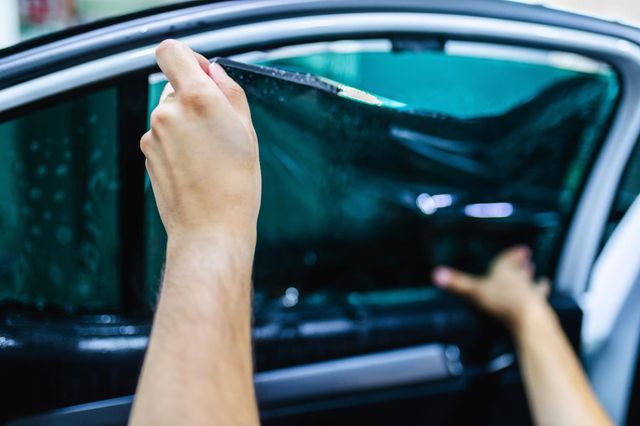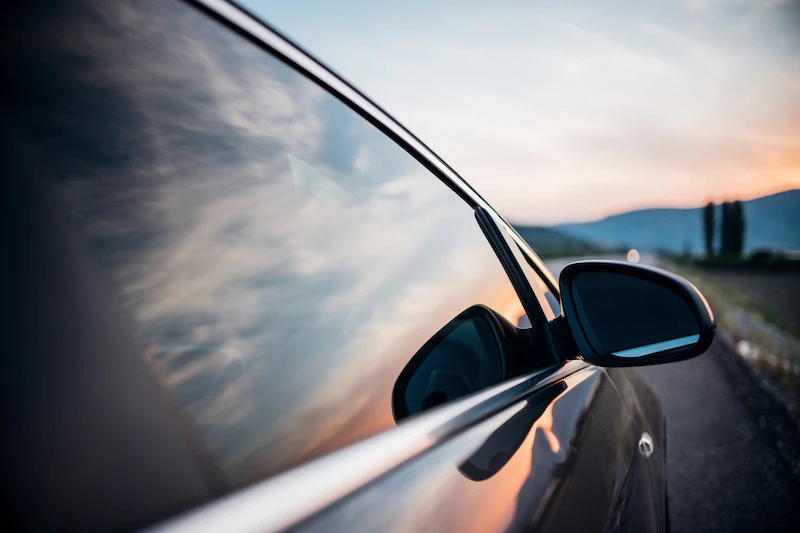Find the most effective Window Tinting Clovis Specialists for Superior UV Security
Find the most effective Window Tinting Clovis Specialists for Superior UV Security
Blog Article
Checking Out the Numerous Kinds Of Home Window Tinting: A Comprehensive Review for Car Owners
In the realm of automotive enhancements, home window tinting stands out as a practical choice for car proprietors intending to improve comfort and visual appeals while supplying vital protection (window tinting clovis). Understanding the legal laws governing tinting in various jurisdictions adds one more layer of intricacy to the decision-making process.
Benefits of Window Tinting
Window tinting offers a myriad of benefits that improve both the aesthetic allure and performance of vehicles. Among the key advantages is the reduction of damaging ultraviolet (UV) rays, which can result in skin damages and increase the danger of skin cancer cells. By obstructing approximately 99% of UV radiation, tinted home windows provide important security for passengers throughout day-to-day commutes or long trips.
Additionally, window tinting significantly enhances interior comfort by minimizing glare and warmth buildup. This not just creates an extra positive driving experience but additionally decreases the reliance on a/c, leading to fuel financial savings. Boosted privacy is another essential advantage; colored windows cover the sight right into the car, protecting personal possessions and ensuring a sense of protection for occupants.
Furthermore, window tinting can prolong the life-span of an automobile's interior by decreasing sunlight damage, such as fading and cracking of furniture. Lastly, several jurisdictions identify the aesthetic value of tinted home windows, which can raise a vehicle's overall appearance and resale worth. In recap, the complex advantages of window tinting make it a beneficial financial investment for automobile owners seeking to enhance safety and security, comfort, and design.
Kinds of Home Window Tint Movies
A variety of window color films are offered on the marketplace, each created to fulfill different requirements and preferences. One of the most common kinds consist of colored, metalized, ceramic, and crossbreed films.
Dyed movies are prominent for their visual charm, as they offer a darker tint without reflecting light. Metalized movies, on the other hand, have metal particles that mirror heat and UV rays, boosting durability and performance.
Ceramic films stand for a premium choice, supplying premium warmth being rejected and UV protection without the drawbacks of reflectivity. These movies are non-conductive and do not influence digital gadgets, making them a preferred option among automobile proprietors seeking high efficiency. Crossbreed films integrate the advantages of colored and metalized movies, offering a balance in between cost and performance.
Picking the right movie relies on individual priorities such as warmth rejection, visual appeals, and budget. Recognizing the attributes of each type can lead automobile proprietors in making educated choices that straighten with their certain requirements and preferences.

Legal Rules on Tints
Legal policies on window tinting differ dramatically across various areas, showing regional laws and security requirements targeted at guaranteeing motorist presence and safety and security. In the United States, as an example, each state has its own collection of rules governing the permitted levels of tint darkness, normally measured by Visible Light Transmission (VLT) portions. While some states permit darker tints for back windows, others enforce more stringent restrictions on front side internet home windows and windscreens.
Globally, policies can vary much more substantially (window tinting clovis). Nations may impose complete bans on tinting or limit it to lighter shades. In the European Union, the front windshield needs to permit at least 75% of light to pass through, while the front side home windows have to allow at least 70%.
Conformity with these guidelines is critical, as failure to stick can cause fines, obligatory removal of non-compliant tints, or even automobile examinations. For that reason, vehicle proprietors must acquaint themselves with their local regulations prior to using window tinting. Consulting with experts and reviewing state or nationwide guidelines can help guarantee that any type of selected color complies with legal standards, ultimately improving both security and aesthetic appeals.
Setup Refine and Factors To Consider
When taking into consideration the installment of home window tinting for automobiles, numerous crucial variables should be taken into account to ensure an effective result. Selecting the right kind of tint is essential, as numerous materials supply different levels of heat denial, UV security, and visual charm. Additionally, it is very important to check local laws concerning color darkness and reflectivity to continue to be certified with the law.
The installation process itself can be performed DIY or by an expert. While do it yourself packages are readily available, expert setup is commonly recommended for optimum results. Experts have the essential skills, tools, and experience to view it make certain a perfect application, which reduces the threat of bubbles, folds, or peeling.
Before installment, the car's home windows should be thoroughly cleaned up and dried out to protect against contaminants from conflicting with the adhesive. By taking into consideration these variables, vehicle proprietors can enhance their driving experience while ensuring the durability and performance of their window tint.
Maintenance and Treatment Tips
Correct upkeep and care are important for maintaining the look and functionality of home window tinting after setup. To guarantee long life, lorry proprietors need to wait at the very least 2 days before rolling down their home windows, enabling the glue to treat correctly. Routine cleansing is necessary; nonetheless, it's vital to utilize gentle, ammonia-free remedies and soft microfiber fabrics to prevent scratching the color.
When washing your car, avoid high-pressure water sprays straight on the colored home windows, as this can deteriorate the sticky in time. Instead, use a damp fabric to clean the surface carefully. In addition, avoid using unpleasant products, such as rough sponges or brushes, which can damage the color.
Check your window tint periodically for indicators of bubbling, peeling off, or discoloration. Get in touch with a specialist to identify whether fixings or substitutes are necessary if any kind of problems are identified. Vehicle parking in shaded locations or making use of sunshades can further protect your tint from prolonged sun direct exposure, which can lead to fading.
Conclusion
In summary, understanding the various kinds of window tinting is vital for automobile owners aiming to boost convenience, aesthetics, and security. Appropriate installation and upkeep further guarantee optimum efficiency and longevity of the color.
In summary, the multifaceted benefits of window tinting make it a useful financial investment for car proprietors seeking to boost comfort, safety and security, and design.
Legal laws on window tinting vary substantially across various areas, showing local regulations and security criteria aimed at ensuring This Site chauffeur presence and security. While some states allow darker colors for back windows, others impose stricter limits on front side home windows and windshields.

Report this page